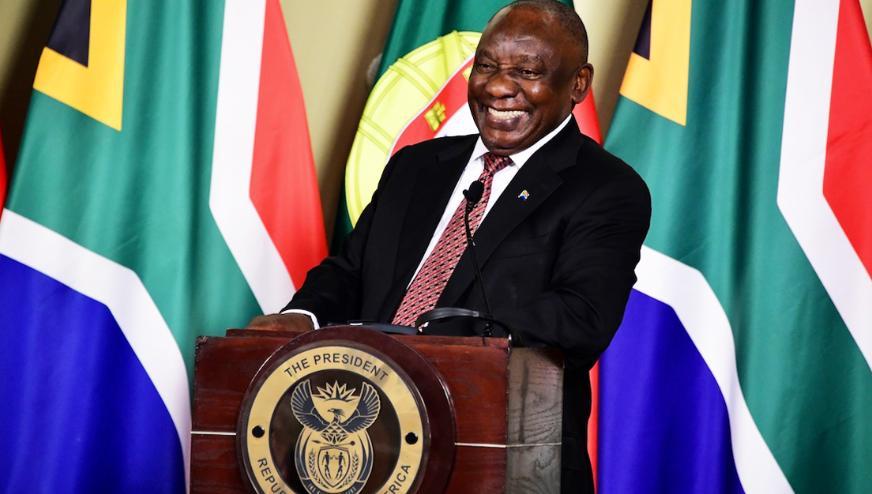Africa-Press – South-Africa. Amid economic stagnation and growing public doubt, South Africa’s Government-Business Partnership has launched a three-month “execution sprint” to fast-track reforms in energy, logistics, and crime.
But with GDP forecasts falling and unemployment stuck above 30%, critics ask: Is this meaningful reform, or political theatre?
In 2023, organised business (around 150 CEOs) pledged support, offering expertise and capital to help fix issues in three key areas: electricity, transport and logistics, and crime and corruption. Youth employment was added in January 2025.
It was built directly on the framework of 2023 “crisis committees” like the National Energy Crisis Committee (NECOM) and the National Logistics Crisis Committee (NLCC) – committees far from foreign to South Africa.
Phase 1 saw modest progress: load shedding declined, R250 million in investment, and expert support for Eskom and Transnet.
“We are steadily removing the obstacles to meaningful and faster growth… [through] economic reforms that we are implementing,” President Cyril Ramaphosa recently remarked.
Launched in October 2024, Phase 2 introduced ambitious goals, including:
Achieving 3.3% GDP growth by end-2025;
Unlocking R23 billion in private energy investment;
Investing R28 billion into rail infrastructure;
Creating 400,000 youth jobs by 2026.
Ramaphosa called the initiative “well aligned with the priorities of the Government of National Unity,” asserting that it signaled renewed investor confidence for the country.
At the launch, DA leader John Steenhuisen endorsed the initiative, telling BusinessTech that it is “exactly what South Africa needs.”
“Public-private partnerships are the way to go, and it ties in with the mission of the GNU of growth and jobs,” he said.
Government officials and business leaders at the launch of the second phase of the Government Business Partnership in October 2024. Photo: Seth Thorne
Big reform push as growth stagnates
In early May 2025, Ramaphosa convened ministers and top business leaders to announce a three-month acceleration plan.
“Progress has been made, but it’s not enough,” said Adrian Gore, Vice President of BUSA. “This requires a step change in the pace of decision-making and execution.”
“Expediting reforms and performance improvement is crucial,” said the Presidency in a statement.
“GDP growth projections for 2025 have been revised down, and current forecasts remain far below the minimum 3% required to create the level of jobs needed to make an impact on the country’s high levels of unemployment,” it added.
Even supporters acknowledge time is short. The acceleration plan includes:
Boosting Eskom’s Energy Availability Factor and unblocking grid access;
Increasing Transnet export volumes amid stabilisation;
Advancing reforms like electricity wheeling and opening private investment in ports and rail.
The Presidency said that crime, corruption, and youth employment efforts “are on track”, though geared for long-term impact.
BUSA Vice President and business co-convenor of the Partnership, Adrian Gore, at the launch of the second phase. Photo: Seth Thorne
Is it really working?
But confidence and communication alone are not enough, and public doubts are deepening. This comes after numerous downwards revisions of South Africa’s economic growth and an increase in unemployment.
The Bureau for Economic Research, who initially conceptualised the 3.3% growth figure, expects growth to be cut from 1.5% to ~1% for 2025 after Q1’s 0.1% growth, with upside scenarios suggesting 3.3% if reforms significantly accelerate.
The African Development Bank forecasts 0.8% growth for South Africa for 2025, the lowest among regional peers.
Meanwhile, the official unemployment rate rose to 32.9% in Q1 2025 (about 8.23 million people), while the expanded rate, including discouraged workers, increased to 43.1%.
ActionSA’s Alan Beesley criticised the partnership as ineffective, citing stagnant growth and lack of accountability.
“Government is not serious in its commitment to working with private business,” Beesley told BusinessTech.
“It is all talk and in a sense, this talk is an attempt to placate the business sector. If there was a serious commitment there would be evidence and results for this commitment.”
Growth “is not possible without bold and pragmatic economic reforms,” he said, which include:
Focused liberalisation of the logistics and electricity sector;
Reduction of red tape and bureaucracy;
Relaxation of labour laws;
Scraping of the current BBBEE and replacing it with “a more inclusive means of achieving transformation, including the empowering of SMME’s”;
Clampdown on corruption with corrupt officials facing lengthy prison sentences; and
Crackdown on illicit trade;
Cut down the size and perks of the cabinet.
Beesley said that if there is any hope of achieving growth, “members of the cabinet must be held to account.”
“Currently, there is no accountability within government departments and government entities. This must start with the executive,” he said.
Key reforms driven by Operation Vulindlela are enabling greater private sector involvement in energy, logistics, and infrastructure, while regulations for digital communications, water licensing, and eVisas are being streamlined.
The IMF urges full and swifter implementation of these reforms and further structural changes: focusing on cutting red tape, improving governance, and making labour markets more flexible.
Recent IMF analysis suggests reforms halving South Africa’s business regulation, governance, and labor-market gaps relative to peers could increase medium-run output by 9%.
“While the challenges are massive, South Africa’s new government has a unique opportunity to…implement an ambitious package of reforms that can put the economy on a path toward higher growth,” said Delia Velculescu and Kamil Dybczak, IMF mission chief and senior economist for South Africa.
For More News And Analysis About South-Africa Follow Africa-Press






